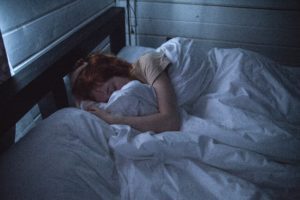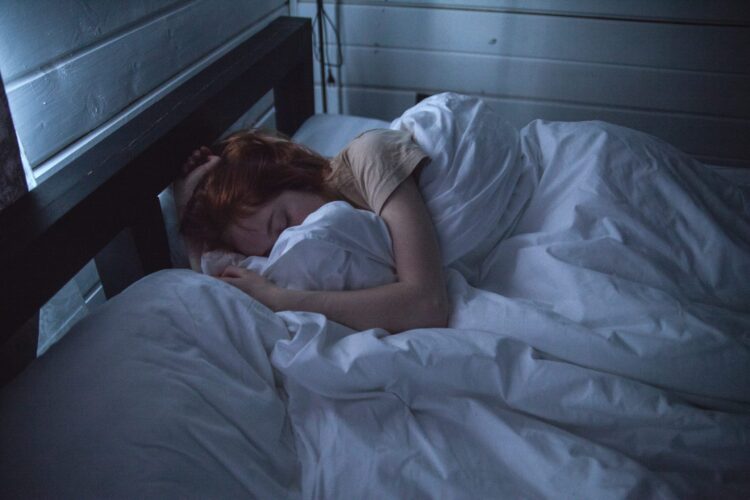 There are few things in life we can do that 1) improve our health tenfold and 2) are free! Fortunately we all have access to one of the most powerful remedies: sleep. While you certainly understand on a base level why you need a good night’s rest, here’s what to know about how transformative it really is, and tips for when you’re having trouble.
There are few things in life we can do that 1) improve our health tenfold and 2) are free! Fortunately we all have access to one of the most powerful remedies: sleep. While you certainly understand on a base level why you need a good night’s rest, here’s what to know about how transformative it really is, and tips for when you’re having trouble.
Unraveling the Mystery of Sleep
For centuries, humankind has studied the riddles of sleep, and developed some rather interesting theories.
- Ancient Hindu rishis considered the process as a means to achieve enlightenment.
- Greek philosopher Aristotle first thought sleep was the heart’s consciousness and the source of digestive power, but later, a Greek physician named Galen somehow concluded that the brain was actually the source of consciousness.
- During the European Age of Enlightenment (roughly 1685-1815), sleeping too much was considered the mark of a lazy person, and many people regulated the practice. This is also when scientists toyed with dream interpretation.
- Japanese folklore suggested that a person won’t sleep well if they’re moving about in someone else’s dream.
- Current members of the Hadza tribe of Tanzania—thought to be one of the oldest civilizations on earth—seemed to have inherited shift sleep patterns from their ancestors that feature periodic wakefulness in the night, believed to be an instinctual form of protection from apex predators.
In the early 20th century, researchers were able to start making real advancements in sleep knowledge, including circadian rhythms, the discovery of rapid-eye movement (REM) and our fluctuating sleep cycles, and brainwave stages.
Originally, “common theories of sleep involved the brain shutting down, or powering off, similar to a car engine,” according to Gray Matter Journal. Further research concluded that a gland in the brain, the hypothalamus, is the command center for sleep. Instead of shutting down, the hypothalamus “creates a positive feedback loop, which also explains the swift transition from wakefulness to sleep and vice versa. As such, it would be more accurate to portray its activity as a ‘flip-flop’ switch, in which both states indicate that the brain is ‘on’ but has alternating function.”
Sleep: The Wonder Drug
According to the National Institutes of Health (NIH), “about 50 to 70 million Americans have sleep disorders, and 1 in 3 adults do not regularly get the recommended amount of uninterrupted sleep they need to protect their health.” So it’s essential to focus on better sleep hygiene. Why?
The Office of Disease Prevention and Health Promotion (ODPHP) states the following benefits of sleep (which we provide verbatim) that most people experience. It helps you:
- Get sick less often
- Stay at a healthy weight
- Lower your risk for serious health problems, like diabetes, heart, and kidney disease
- Reduce stress and improve your mood
- Think more clearly and do better in school and at work
- Get along better with people
- Make good decisions and avoid injuries—for example, drowsy drivers cause thousands of car accidents every year
Additionally, prioritizing sleep is an essential tool to care for yourself in recovery. Having quality rest helps curb impulsive behaviors and minimize the effects of triggers. Veterans managing PTSD also notice a major change in symptoms when sleep improves.
The NIH points out another critical factor: whenever we sleep, the brain and body use that time for essential repair. This includes removing specific proteins associated with Alzheimer’s disease, improving circulation, reducing inflammation, and regulating the immune system. “There are certain repair processes that occur in the body mostly, or most effectively, during sleep,” NIH notes. “If you don’t get enough sleep, those processes are going to be disturbed.”
Ensure Your Health With Quality Sleep
The average adult requires a consistent seven hours or more of good-quality rest each night. How do you know what your sleep sweet spot is? You should awake every day feeling generally refreshed and energetic.
But if you’ve had trouble sleeping or struggle with insomnia in recovery, ODPHP offers a few tips to improve your sleep hygiene.
- During the day, try to spend time in natural light, especially before noon, and perhaps while getting some exercise. Don’t rely on naps to alleviate your sleep debt—but if you must relax for a bit, make sure to do so for only 10–20 minutes. Also minimize caffeine and avoid it completely 6–8 hours before bedtime, and eat a light dinner at least two hours prior to settling in for the night.
- For the best rest, create an environment conducive for sleep. This includes keeping the bedroom free of distractions, clutter, and excess light. Set the thermostat between 60–70 degrees, as most of us sleep better in cooler temperatures. Also establish a regular bedtime routine, choosing calming activities to help you wind down instead of watching TV or movies on your phone. And remember, over-the-counter sleep aids might work for a night or two but shouldn’t be considered a long-term solution.
If these practices don’t seem to help, it might be time to consult a specialist who can test for sleep disorders due to shift work and related conditions such as chronic insomnia, narcolepsy (daytime sleepiness), REM sleep behavior disorder, restless leg syndrome, and sleep apnea.
Plan for the Best Recovery at Great Oaks
Learning behavioral modifications such as sleep hygiene are crucial to success in recovery. If you or a loved one is ready to make other positive health changes and put an end to substance use for good, our addiction rehabilitation center outside of Houston can help.



